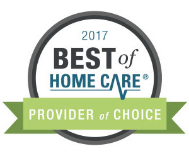Understanding Activities of Daily Living (ADLs)

Sidney Katz, MD, first formulated an index of basic activities that are necessary for a senior to live independently in 1963. The Katz Index of Activities of Daily Living is still used by healthcare professionals to assess functional abilities and evaluate long-term care needs in older adults.
The use of indexes to measure daily functioning is important in the overall assessment of a senior's wellbeing because appropriate levels of assistance with ADLs can improve an elder’s independence, health outcomes, and quality of life. An official assessment of the ability to complete the six activities of daily living (ADLs) contributes to the determination of a senior’s eligibility for both supportive services and financial assistance such as Medicaid long-term care, VA benefits, and the payment of long-term care insurance claims.
What Are the Six Activities of Daily Living (ADLs)?
Activities of daily living fall into six categories of basic skills needed to properly care for oneself. Due to varying levels of physical and/or cognitive decline, a senior may be able to complete ADLs safely and independently in some categories but not have the skills necessary to complete others. Levels of assistance also vary; seniors may need help ranging from prompting or supervision to total support in order to ensure these basic physical needs are met.
When evaluating daily functioning, evaluators will assess these 6 basic areas of functioning:
Eating
Is the individual able to move food and drink successfully from the table to their mouth?
Bathing and Personal Hygiene
Is the individual able to get in and out of the shower or bath without assistance? Are they able to wash their face, body, and hair? Are they able to groom themselves, maintain oral hygiene, and care for their nails?
Dressing
Is the individual able to choose appropriate clothing? Are they able to put on and take off these items, including fastening and unfastening them properly?
Continence
Can the individual maintain control over their bladder and bowel function?
Toileting
Is the individual able to transfer on and off the toilet, clean themselves, and resecure their clothing?
Walking and Transferring
Is the individual able to walk independently? Are they able to move to and from a chair and bed without the assistance of another person? Note that the use of assistive devices or mobility aids such as canes or walkers is an acceptable source of support in walking and transferring independently.
Creating a Care Plan based on ADLs
The amount of assistance a senior requires to complete each of these ADLs is used to determine the level of care they require and create a personalized plan for support, called a care plan. For this reason, most state and federal assistance programs, home care companies, adult day care programs, and senior housing facilities require an ADL assessment as the starting point for establishing a person’s suitability or eligibility for services and/or coverage.
When navigating elder care options, benefits, and supportive services, ADL assistance can be referred to as personal, companion, or custodial care. This non-medical or “unskilled” care is commonly provided by family caregivers or licensed home care agencies with professionally trained home care aides in a senior’s own home. Of course, assistance with ADLs is also provided in long-term care settings that offer higher levels of skilled care, such as memory care units and nursing homes.
A professional assessment is often the gateway to eligibility for additional services. Functional assessments that identify ADL difficulties can be made by physicians, nurses, case managers, and occupational therapists. Furthermore, long-term care insurance companies typically employ assessors to make eligibility determinations for policyholders who wish to begin using their long-term care benefits.
If you are noticing a change in functional capabilities that are impacting your loved one’s ability to live independently, call Caring Companions At Home for a free in-home assessment by one of our qualified Case Managers.

























